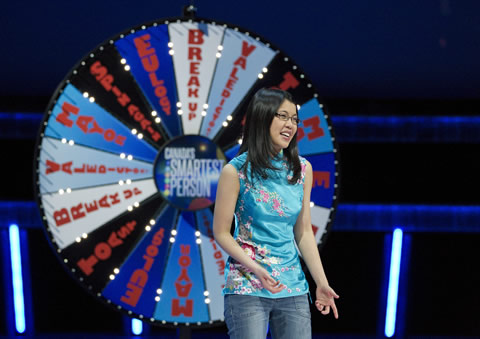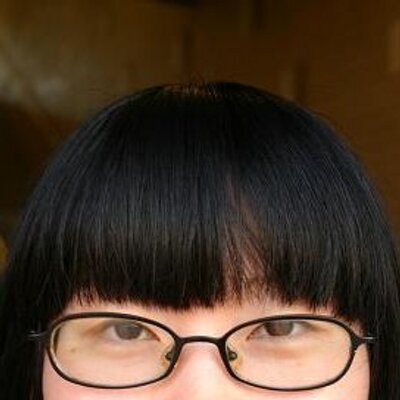Laura Suen, 23, already had plenty to brag about when CBC producers picked her as one of four contestants on Canada’s Smartest Person, which aired on the network in March.
After earning a degree in physics and cellular and molecular biology from U of T, she had landed a job designing lasers at TRIUMF, Canada’s national laboratory for particle and nuclear physics. And as a pre-teen, she had figured out how to make thousands of dollars in the virtual economies of massive multi-player online role-playing games.
But neither her education nor her experience were enough to truly prepare her for a contest in which she was required to demonstrate ability in six areas of “intelligence” – logical, visual, physical, linguistic, musical and social – in front of a live television audience. In the end, she fell just shy of the title, placing second to CFL offensive lineman Peter Dyakowski.
It turns out having to think and react quickly in front of a cheering live audience is not as easy as it looks. “I was surprised by how distracting that was,” she says. In the two-person final against Dyakowski, Suen flubbed a simple math question that one might think she, as a science grad, could have aced. “The misconception is that physics majors should be good at mental math. Not true. We’re good at learning complicated math,” she says.
Suen says she found the musical challenge especially interesting. Contestants were asked to listen to a 30-second track with 10 instruments. The track was played a second time, but with four instruments dropping out. They had to identify which instruments left and when, with only 10 seconds to lock in answers. “All these challenges were really fast,” says Suen. “There was no time to think. You either had it or you didn’t.”
In the linguistics challenge, 30 to 40 random words flashed on a screen. Contestants spun a wheel to determine a category, and then had to give a speech on that topic, incorporating as many of the words as possible.
Sometimes the speed and frenzy didn’t make sense to Suen. In the “social challenge,” contestants were awarded points for a two-minute free-for-all debate on the best invention in human history. Suen chose the Internet and came in last place. “We were encouraged to talk over each other. I’m not completely sure how this evaluated social skills,” she says. “The guy who talked the least was the one who got the most points.”
Even though she didn’t win the title of smartest, Suen still appreciated the experience. “I was terrible, but it was a lot of fun,” she says. “When you get in the zone, you turn into a different person. At one point, I told the host to shut up. I normally would not tell the host to shut up.” Being the youngest contestant and the only woman, was additionally motivating, she says. “I wanted to take them all down. There’s no cash prize, so it’s all about competing—earning the title—and having a good time.”







No Responses to “ Who’s the Smartest of Them All? ”
Now that technology has made intelligence obsolete, it has become a fetish. This is now the best way to make money off it (just like automobiles and exercise).